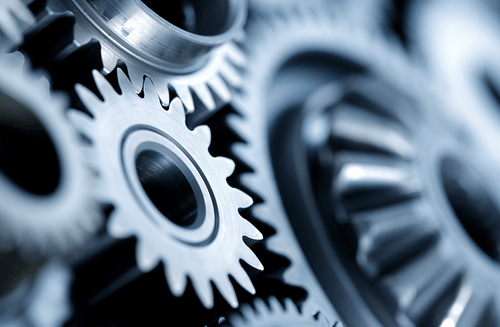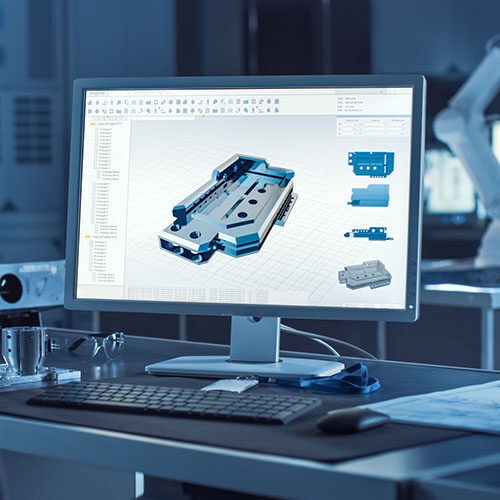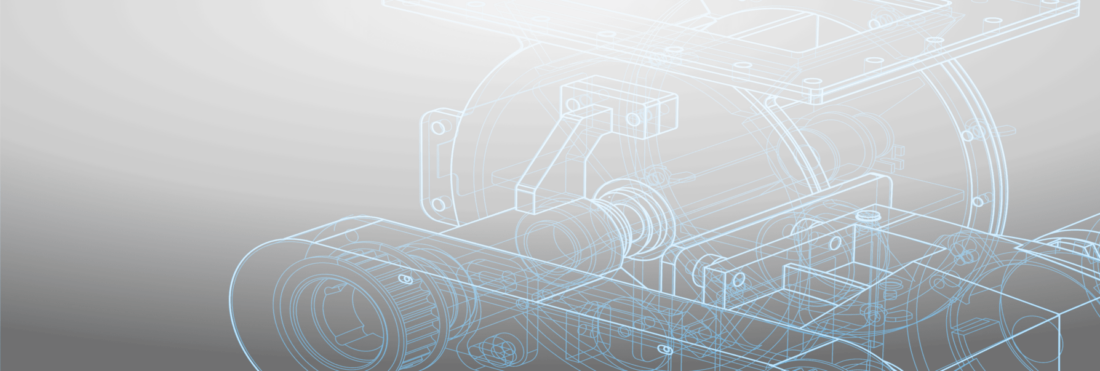
Machine engineering and equipment manufacturing requires a high degree of technical expertise and innovation, lots of inventory and machinary, and complicated processes — all of which make it a challenging enterprise. These types of manufacturers need specific tools and technologies to help them design, engineer, manufacture, and assemble their complex builds. Machinery and equipment manufacturers must use an ERP (Enterprise Resource Planning) system that can support high precision, efficiency, and flexibility in the design and manufacturing process.
What Is Machine Engineering and Equipment Manufacturing?
Machine engineering and equipment manufacturing involves designing, developing, and manufacturing various types of machines and equipment for a wide range of applications, such as construction, manufacturing, mining, agriculture, and transportation. Machinery and equipment manufacturers build a diverse range of products, including heavy machinery, tools, and equipment used in various industries.
Machine engineering is the design and development of machines, which involves the creation of technical specifications, 3D modeling, prototyping, and testing. The design process also involves considering the machine’s safety, performance, and reliability.
Equipment manufacturing is the production of various types of equipment, such as pumps, motors, engines, and other machinery, and involves processes such as machining, casting, forging, and welding, among others.
Unique Features for Unique Needs
Machine engineering and equipment manufacturers typically have complex product configurations, large amounts of inventory, a high volume of customer orders, and a complex supply chain, meaning they need an ERP system designed to meet their unique challenges and needs.
Product Configuration Management
Machine engineering and equipment manufacturers build complex products with complex configurations. An ERP system with strong product configuration management capabilities helps manufacturers streamline the process of configuring and pricing their products, reducing errors, and increasing efficiency.
A product configurator is a powerful tool that enables machine and equipment manufacturers to access a list of configurable products, options, and visuals to create a complete and accurate product. ERPs equipped with this feature allow manufacturers to not only create an accurate quote — with the right sales price to ensure a profit — but a fully itemized BOM (bill of materials), that is ready for procurement and production.
Engineering-specific Features
Wasted engineering time is a major problem for machine engineering and equipment manufacturers. The manual transfer of a BOM from a CAD system to an ERP can consume up to 20% of engineering time — time that could be spent on other, more critical and profitable tasks.
But an ERP system equipped with CAD2BOM, or Computer-Aided Design to Bill of Materials, automatically converts 3D CAD models into a BOM, providing an accurate list of all the components required to manufacture a product, including the quantities, part numbers, and suppliers. Not only does this save engineering time, but it also improves accuracy and efficiency, speeding up jobs and reducing errors.
Supply Chain Management
Machine engineering and equipment manufacturers typically have complex supply chains, which can be difficult to manage. An ERP system with strong supply chain management features can help these manufacturers to optimize their supply chain processes, improving the efficiency of their operations and reducing costs.
Advanced Planning and Scheduling
An ERP system with advanced planning and scheduling features helps machine engineering and equipment manufacturers manage their production schedules more efficiently, to reduce lead times, keep jobs on schedule, and meet customer demands.
ERPs designed for the machine engineering and equipment industry must include advanced tools for shop floor scheduling and planning that can schedule work centers, personnel, required parts, and tools based on a BOM, plus a shop’s actual workload and capacity. They also must be able to manage changes and any shifting dependencies across manufacturing shop floors. This improves reliability and control for machine engineering and equipment manufacturers, leading to more on-time deliveries and greater customer loyalty.
Inventory Management
Machine engineering and equipment manufacturers have extensive inventories that can be difficult to manage. Parts get allocated twice or aren’t on the shelf when needed for production, meaning jobs get held up.
With a connected ERP system equipped with real-time inventory control, machine and equipment manufacturers can avoid material and long-lead item shortages while optimizing their supply chain for a rolling stock of goods when they are needed. A fully-integrated ERP system gives inventory level readings in real-time, allowing machine and equipment manufacturers to always know how many of each item in their inventory is available, reserved for jobs, in production, and on order.
Purchasing and Procurement Features
Unlike in more standardized manufacturing shops, raw materials and parts aren’t required in a consistent or straightforward manner in machine engineering and equipment manufacturing environments. Coupled with the need to procure items with long lead-times — that often need to be ordered before the product has been fully designed and engineered — purchasing is complicated. ERPs equipped with true concurrent engineering make it easier to purchase long-lead components before a BOM is fully completed.
Machine and equipment manufacturers can also benefit from an ERP equipped with a recommended reorder tool that tells them when to repurchase materials and parts to ensure that they never have a material shortage. A reordering tool will identify potential shortages based on real-time inventory, expected delivery times, and the date the item is required according to in-process production orders, and give an alert when it’s time to re-order required items and parts.
Accounting and Financial Management
Machine engineering and equipment manufacturers must manage their finances effectively to remain profitable. An ERP system with solid accounting and financial management features can help manufacturers manage their spending and finances more efficiently, reducing the risk of errors and improving the accuracy of financial reporting.
An ERP also provides machine and equipment manufacturers with real-time data to accurately calculate job costs. A fully-integrated ERP system lets manufacturers trace job costs throughout their production process and accurately assign costs to each job in their shop. With an ERP built for their unique needs, machine and equipment manufacturers can track standard, average, and actual product costs and analyze profitability by job, project, or contract.
Quality Management
Quality control is critical for machine engineering and equipment manufacturers, as their products often have strict quality requirements. An ERP system with quality management features can help these manufacturers to manage the quality of their products more effectively, reducing the risk of defects and ensuring that products meet customer expectations.
Complete Visibility and Oversight
ERPs gives machine engineering and equipment manufacturers a real-time picture of their production floor to continually track, control, and fine-tune their shop for maximum efficiency. With the right ERP, machine engineering and equipment manufacturers can juggle shifting priorities and manage all aspects of every job on their shop floor to improve efficiency and maximize production. They can also detect production bottlenecks and catch issues early — before they get worse and cause delivery deadlines to slip.
Using the total overview of their operations and the real-time data provided by an ERP, machinery and equipment manufacturers can be assured that their employees are always working on the right priorities to drive their businesses forward. Real-time data enables manufacturers to assess work center performance and availability, as well as system performance, track task progress, monitor timesheets, and manage costs for each job in their shop or on the job site.
Conclusion
Machine engineering and equipment manufacturers have unique requirements for their ERP system, including product configuration management, advanced planning and scheduling, inventory management, engineering-specific functionalities, and financial management. Machine engineering and equipment manufacturers will optimize their operations, reduce costs, and improve customer satisfaction by choosing the right ERP system to meet these distinctive needs.
To learn more about how an ERP can improve your machine engineering and equipment manufacturing business, check out our Genius ERP + Reelex Case Study to see how we brought the equipment and packaging manufacturer into the 21st century.
Get your eBook Scared to implement a new ERP?
"*" indicates required fields



